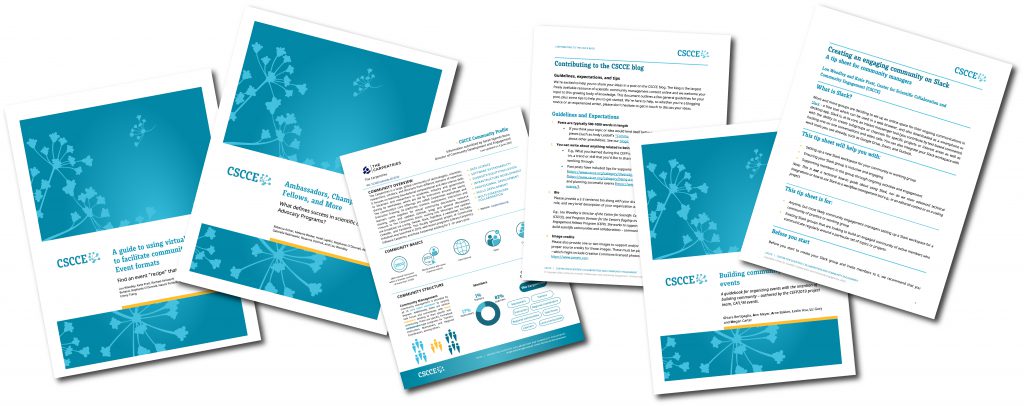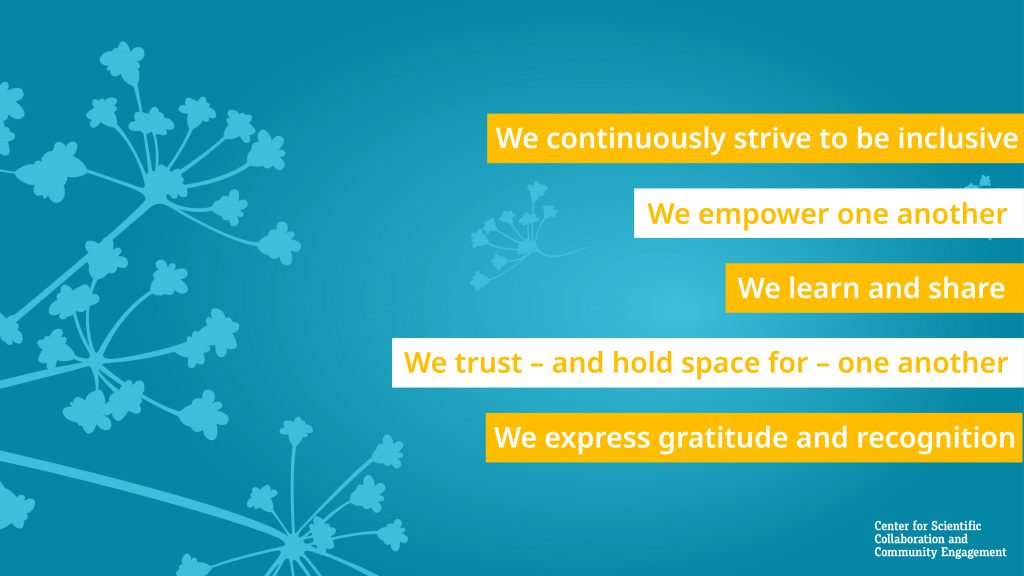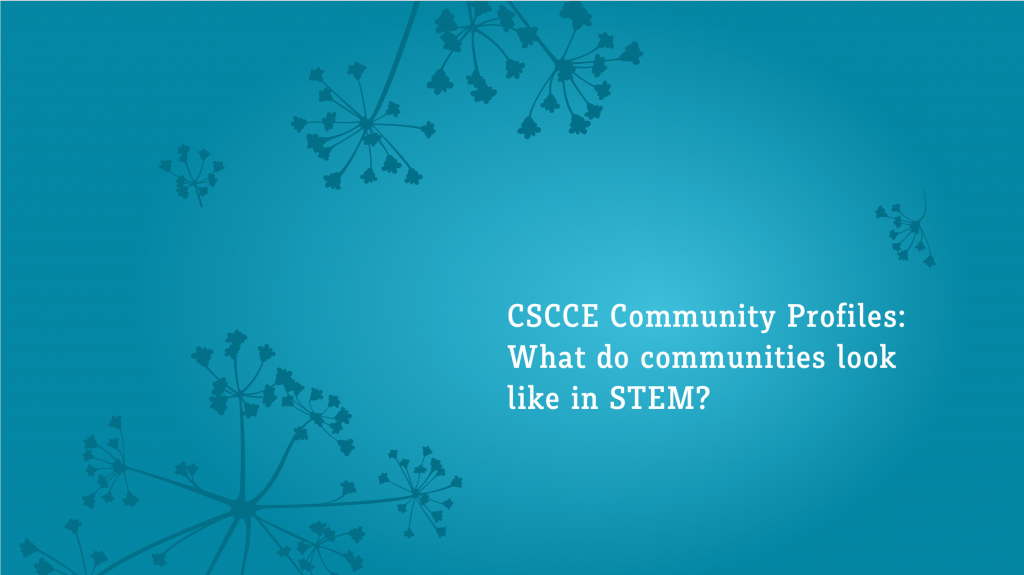The COVID-19 pandemic has underlined the importance of intentionality and good planning in making the most of virtual gatherings. Whether engaging in ideation sessions, report outs, networking, project planning or seminars, we’ve seen how careful choices ahead of the event and thoughtful facilitation during and afterwards can lead to more enjoyable and inclusive experiences for everyone in the virtual room.
To support this transition online, over the course of the last year CSCCE has published a series of resources to help community managers and event organizers – including tip sheets, guidebooks and write-ups of different tools. Today we’re pleased to share a new guidebook and a new series of mini-workshops to continue that support.
Continue reading “New guidebook completes CSCCE’s core resource on using virtual events to facilitate community building in STEM”

